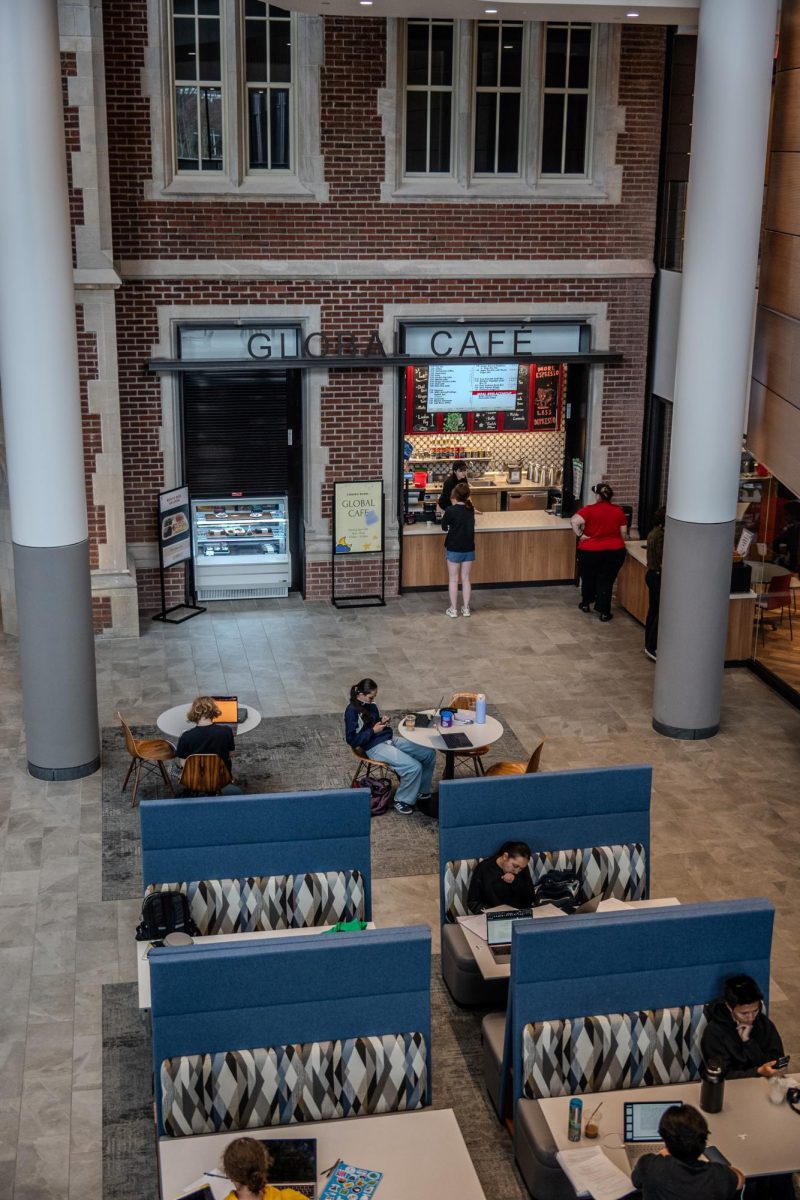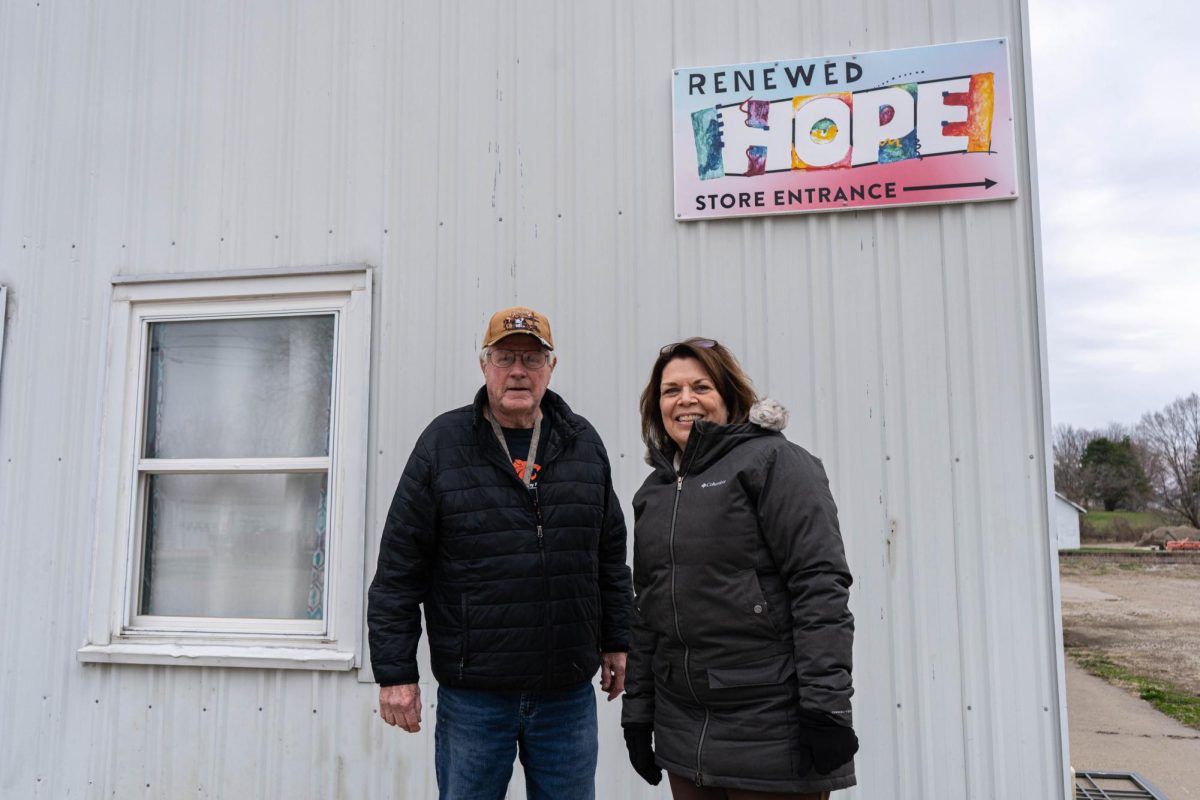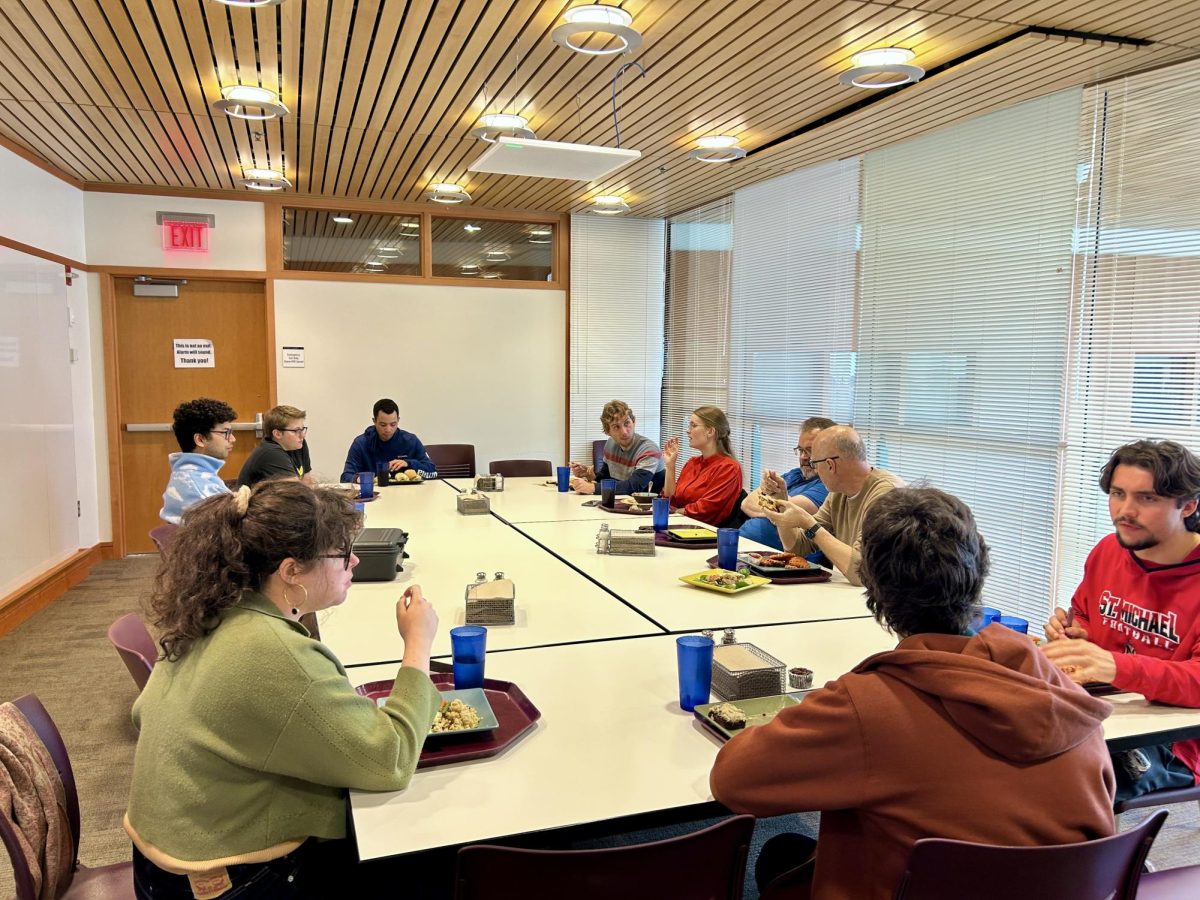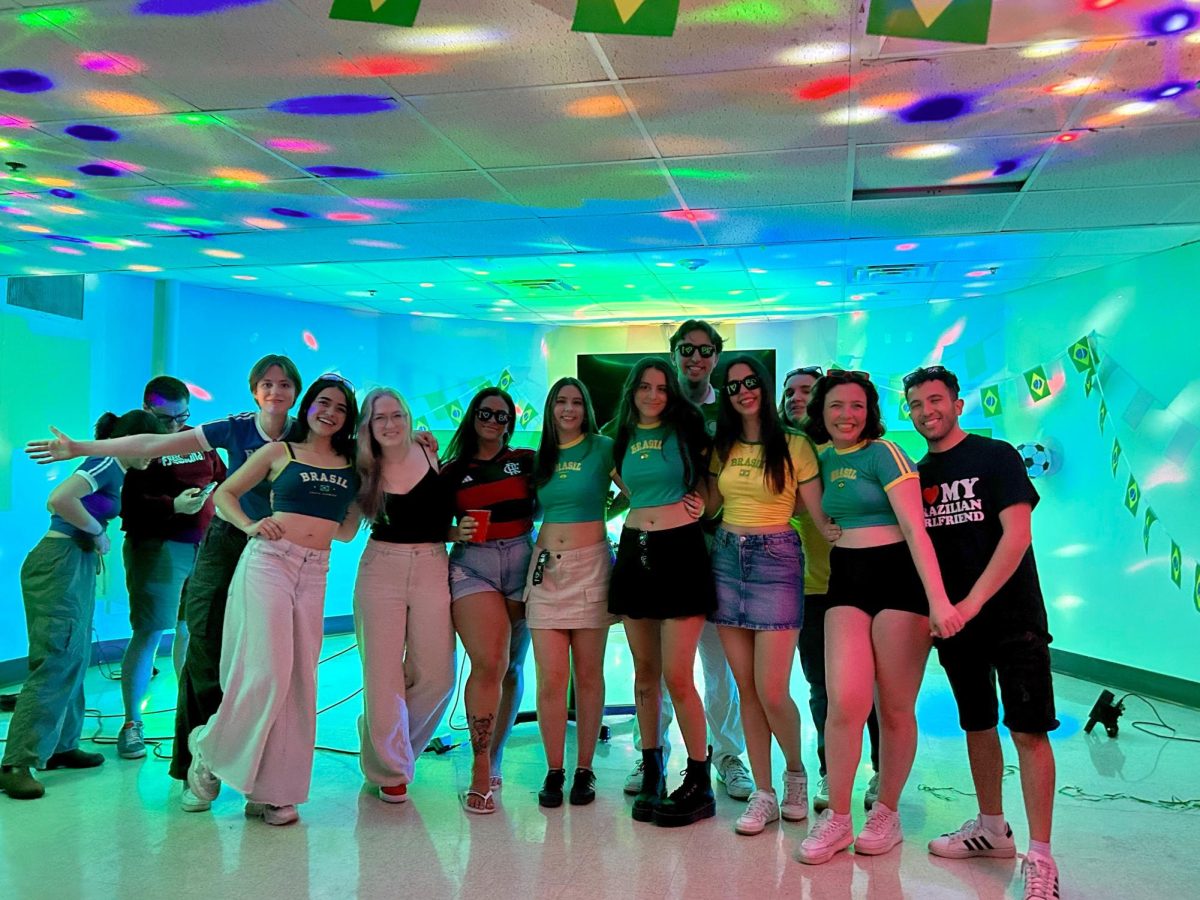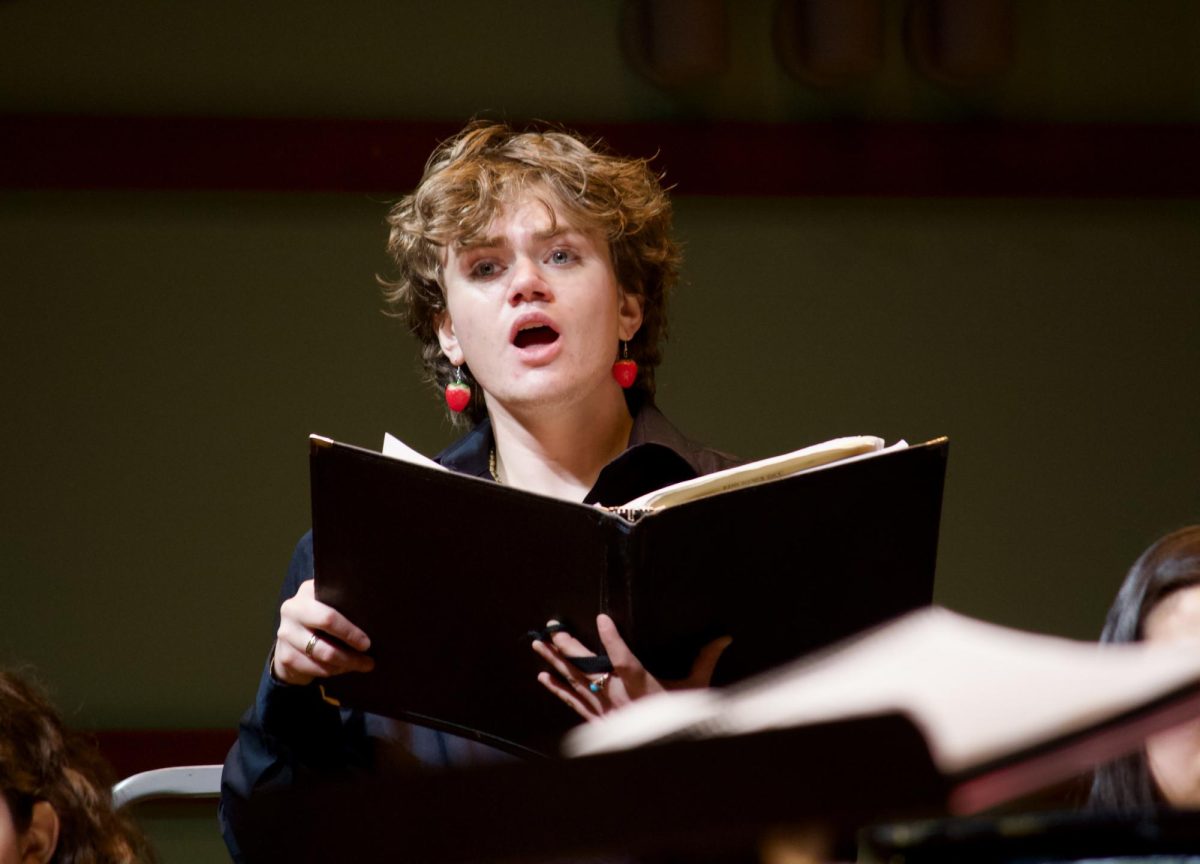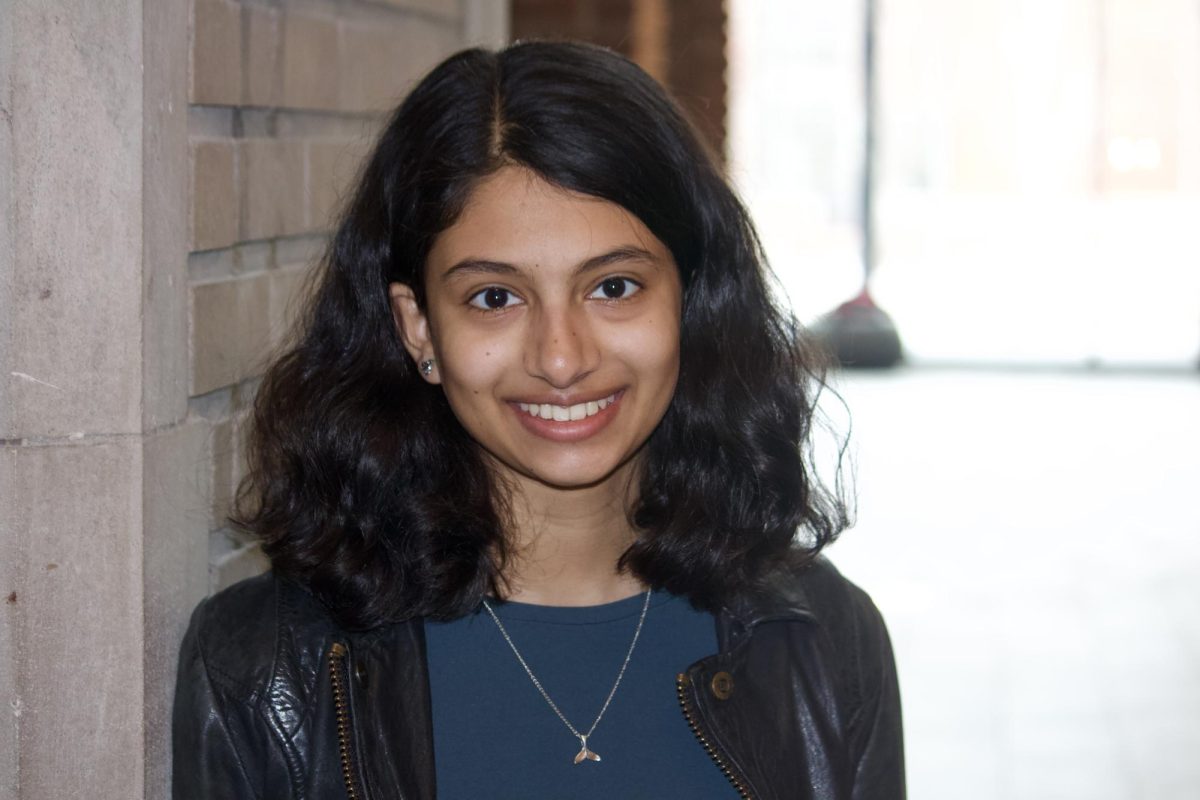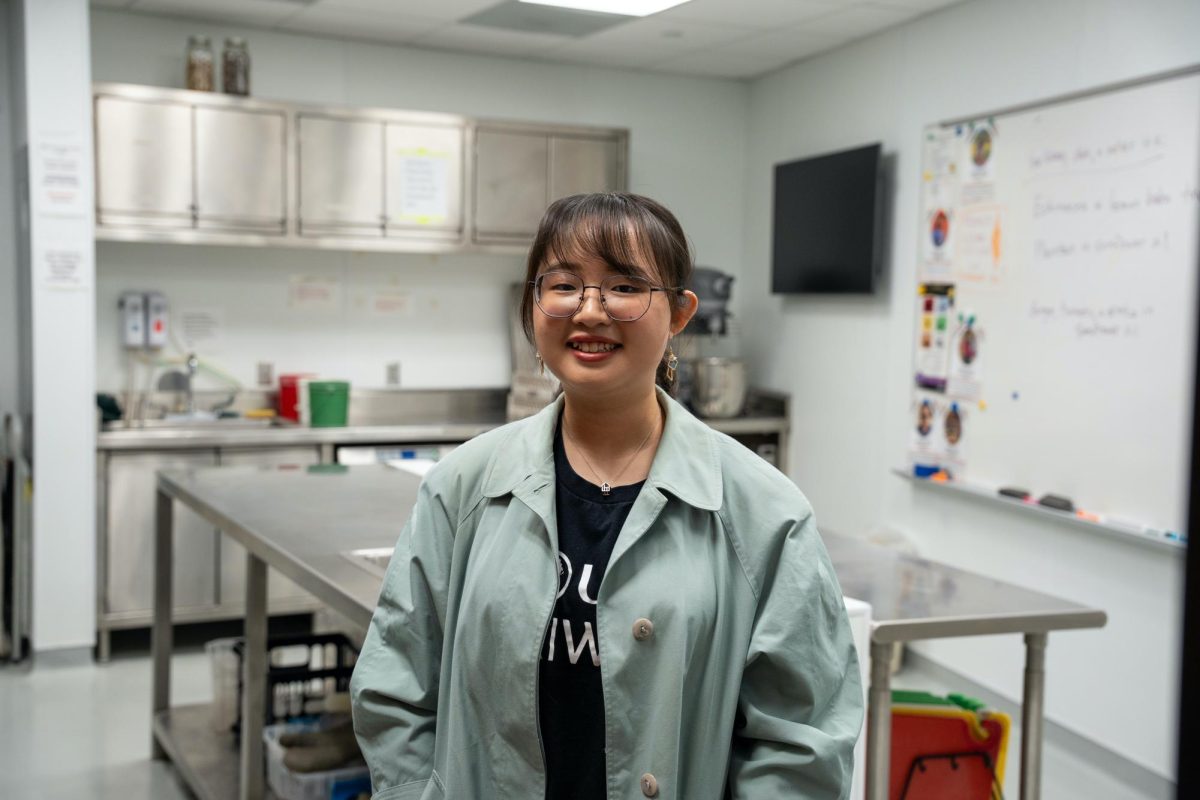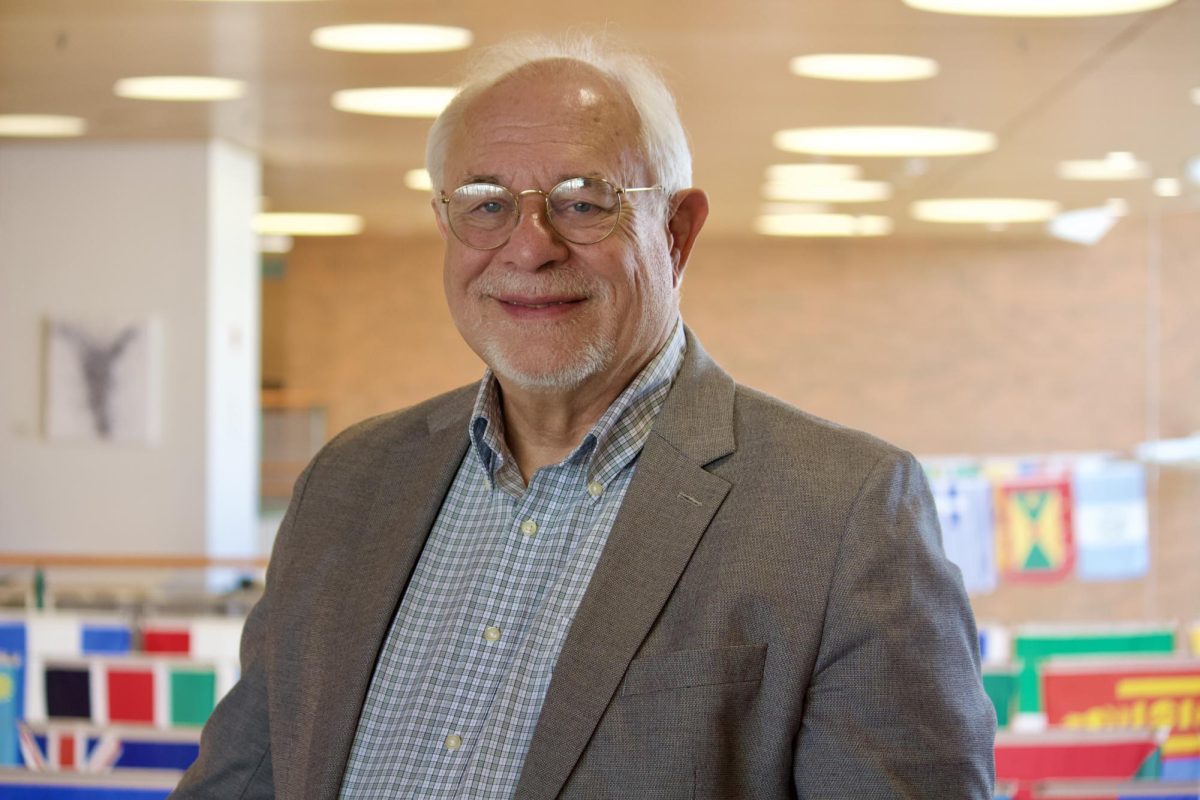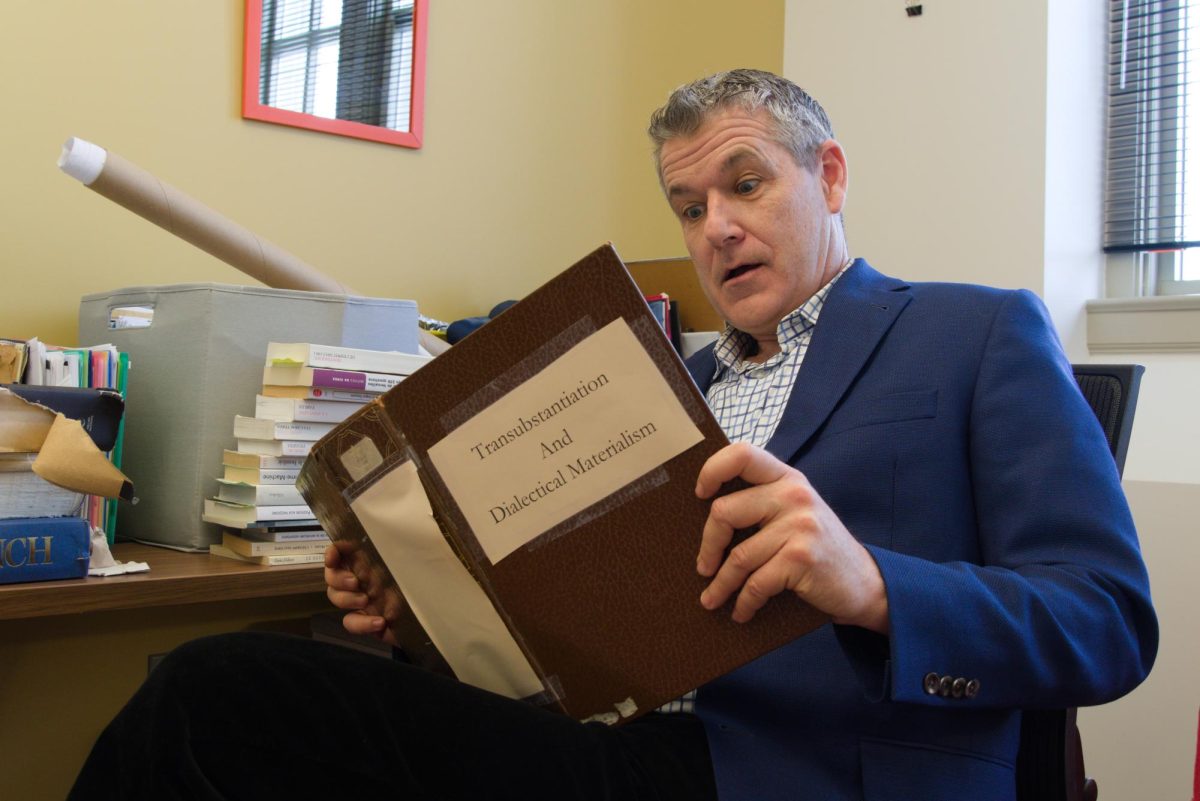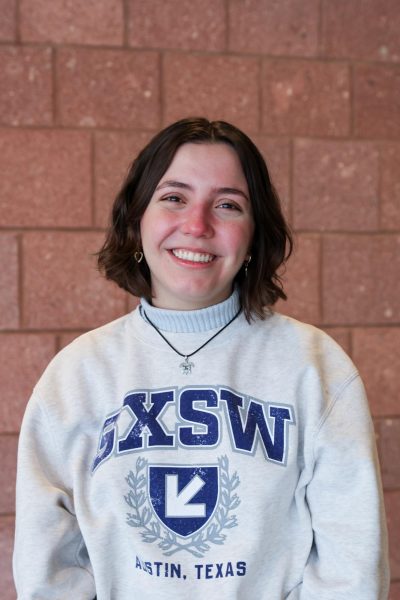As former president Donald J. Trump prepares to retake the oath of office on Jan. 20, his proposed policies and track record loom large for Grinnell College and the international students that make up around 19 percent of its student body.
The uncertainty is compounded by the appointment of billionaires Elon Musk and Vivek Ramaswamy to lead the new Department of Government Efficiency (DOGE), potentially signaling a transformative approach to immigration and international education.
Musk and Ramaswamy have outlined plans to eliminate thousands of regulations, which could lead to significant reductions in the federal workforce and programs like Optional Practical Training (OPT) and H1-B visa lotteries that many international students rely on for employment opportunities after graduation.
Karen Edwards, dean of international student affairs at Grinnell, said she is nervous about potential changes to OPT, which allows students to gain work experience after graduation. Students share her concerns.
“I’m more worried about how this might affect opportunities for research internships, or even worse, the job market after we graduate,” Mihail Palmov `27 said, an international student from Bulgaria. “I feel like it is going to make it a lot harder for any kind of international student to find any job in the U.S.”
Additionally, reports, including one from the Wall Street Journal, suggest Trump’s advisors are preparing executive orders to restrict legal immigration, including reinstating travel bans on several Muslim-majority countries and halting refugee resettlements, which could directly affect current and prospective international students at Grinnell College.
“Trump is a very unpredictable person, you don’t know what policies he is gonna turn out and he is pretty controversial,” Sun Yuvachitti `24.5 said, an international student from Thailand.
The F-1 visa is the most common visa issued to international students in the U.S.. It requires applicants to demonstrate non-immigrant intent, meaning they must show plans to return to their home countries after completing their studies.
Edwards explained a president can implement significant changes affecting F-1 students because much of what governs their benefits and restrictions are based on regulations rather than codified law.
“International students are in a unique situation because you’re non-immigrants, and your status requires non-immigrant intent,” Edwards said. “At the same time that you’re 17- to 21-year-olds that are finding your path.”
This uncertainty of changes that Trump will enact on his inauguration prompted the Office of International Student Affairs (OISA) to issue a precautionary email to international students on Nov. 25, advising that all international students return to the U.S. prior to the presidential inauguration day of January 20, 2025.
The concerns stem from Trump’s previous travel bans, which included an indefinite ban on Syrian refugees entering the United States and a 90-day entry restriction for individuals from seven predominantly Muslim countries — Iran, Iraq, Libya, Somalia, Sudan, Syria and Yemen.
Edwards noted that OISA is particularly concerned about the potential for new policies that could significantly impact international students, many of whom may not be fully aware of the regulatory changes implemented during Trump’s first administration.
“We saw changes in tax code that impacted international students. We saw changes in an attempt to hit the duration of status benefits that F-1 students might not even realize they have,” said Edwards. “The adding of social media handles on your visa application happened during the first Trump administration.”
While Trump’s future actions remain speculative, colleges across the U.S. are offering varying advice to international students. Cornell University advised students that “a travel ban is likely to go into effect soon after inauguration,” while the Massachusetts Institute of Technology cautioned against assumptions, stating that “it is still too early to determine what the immediate impacts may be on immigration and visa issues.”
The mixed messaging in Trump’s 2024 campaign has caused confusion, with rhetoric that ranges from alarming to unexpectedly less hostile, deepening the uncertainty.
In an interview with The All-In Podcast, Trump said of international students, “What I want to do, and what I will do, is if you graduate from a college, I think you should get, automatically as part of your diploma, a green card to be able to stay in this country.”
However, policy recommendations on pages 150 and 151 of the Heritage Foundation’s Project 2025 propose reducing the annual number of H-1B visas to prioritize opportunities for American citizens. Although former President Trump has publicly distanced himself from the project, several of its contributors are former advisors and cabinet members from his previous administration.
Many international College students now say this uncertainty adds to the load they already face as they navigate their academic responsibilities while worrying about losing opportunities in the country they have invested so much in.
“The more I learn, the more worried I get, especially once we got that message from OISA,” Palmov said.
Despite the looming changes, Edwards reassured students that they can rely on institutional support.
“I hope Grinnell students know that the team here and our administrative support structure at the College is paying very close attention to this,” Edwards said. “We very clearly want to proclaim, and try to proclaim, and say out loud, you are welcome here, and we want you here.”


